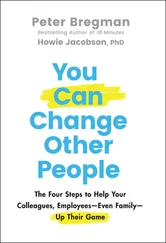Didn’t her own jump?
She wanted her mail to go on being delivered to Paradise Valley as well. She had her own letter-box neurosis which she didn’t want to clash with Kevern’s. She feared letters being lost, postmen being careless about their delivery, just tossing them over the wall into Kevern’s little garden, or not pushing them properly through the flap. She wasn’t waiting for any communication in particular but believed something, that should have reached her in an envelope, was missing from her life: a greeting, an offer she couldn’t have said what of, an advantage or an explanation — even terrible news, but terrible news, too, needed to be faced and not forever dreaded — and the idea that she would not discover it when it came, that Kevern would treat it as junk, or that it would blow away, be blown about the world unknown to her, and leave her waiting, never knowing, was one she found deranging. As a little girl she’d read in comics about a time when people wrote to one another by phone but wrote such horrid things that the practice had to be discouraged. She was glad, at least, that she didn’t have to ‘angst’, as they called it in those comics, about losing phone letters as well. So for the time being, at least, her postal address remained Beck House, Paradise Valley.
If she didn’t return to collect what was waiting for her for more than two or three days at a time, however, the weight of expectation and dread oppressed her more than she could bear.
Most mornings, after breakfast, she accompanied Kevern to his workroom, kissed him, breathed in the lovely fresh smell of sawdust — it reminded her of the circus, she said — and either went back to bed with a book or walked down into the valley, singing to herself, alone. But occasionally they would leave the cottage together in order to wander the cliffs or just sit side by side on his bench. She had made the mistake, the first time, of straightening his rug after he’d rumpled it. She saw him wince and then, without saying anything, rumple it again. Thereafter she simply stood by, expressionless, her arms beside her sides, as he locked up, confirmed that he had locked up, knelt to look inside the letter box, stood up, knelt down again to confirm that what he had seen he had seen, put his hand inside the flap, took it out, and then put it back again, looked one more time, then put his keys in his pocket. Sometimes he would send her on ahead so that he could do all this again.
‘Don’t ask,’ he said.
And she tried not to. But she loved him and wanted to relieve him of some of the stress he was obviously under.
‘Couldn’t I?’ she asked once, meaning couldn’t she make sure for him that everything was OK. Share the burden, whatever it was. Pour the tea, rumple the runner, double-lock and then double-lock again, kneel down and lift the flap of the letter box, peer through (check to see if there was anything for her while she was at it). . she knew the routine well enough by now.
‘Unthinkable,’ he said.
‘Just try thinking it.’
He shook his head, not liking her suddenly, not wanting to look at her. She knew. And was glad she was wearing trousers so he could not see her ankles.
But that night, in bed, after exhaustively locking the house from the inside, he tried explaining why she couldn’t help him.
‘If anything happens it has to be my responsibility. I want at least to know I did all I could. If it happens because of something I have omitted to do, I will never forgive myself. So I make sure.’
‘Happens to the house?’
‘Happens to the house, happens to me, happens to you. .’
‘But what can happen?’
He stared at her. ‘ What can happen . What can’t happen.’ Neither was a question. Both were statements of incontrovertible fact.
They were lying on what she took to be a reproduction Biedermeier bed. He hung his clothes, as now she hung hers, in a fine mahogany wardrobe, two doors on either side of a full-length bevelled mirror, also imitation Biedermeier. It was far too big for the cottage, some of the beam had had to be cut away to make room for it, and she did wonder how anyone had ever succeeded in getting it upstairs. She knew about Biedermeier — it had come back into style. Everyone wanted reproduction Biedermeier. There was a small factory knocking it out in Kildromy, not far from where she grew up. Kildromy-Biedermeier — there was a growing market for it. But she did wonder whether Kevern’s furniture wasn’t reproduction at all. It looked at once far grander and more worn than anything that came out of Kildromy. Could it be the real thing? Everyone cheated a bit, keeping a few more family treasures than they knew they should. And this the authorities turned a blind eye to. But if these pieces were genuine, Kevern was cheating on a grand scale. She tried asking him about it. ‘This Kildromy-Biedermeier?’ He stared at her, lost for words. Then he gathered his wits. ‘Yes,’ he said. ‘Kildromy. Spot on.’
So he was lying. She didn’t judge him. If anything, it thrilled her to be a silent party to such delinquency. But it explained why he went to such lengths to protect his privacy. No one was ever going to come to so remote a place, so difficult of access, to steal a wardrobe; but what if it wasn’t thieves he feared but, she joked to herself, the Biedermeier police?
Once, although she hadn’t mentioned her suspicions, he explained that property wasn’t the reason he was careful.
‘ Careful !’
‘Why, what word would you use?’
‘Obsessive? Compulsive? Disordered?’
He smiled. He was smiling a lot so she shouldn’t take fright. He liked her teasing and didn’t want it to stop.
‘Well, whatever the word, I do what I do because I hate the idea of. . what was that other word you used once, to describe my lack of sexual attack? — invasion .’
‘I didn’t accuse you of lacking sexual attack.’
‘OK.’
‘I truly didn’t. I love the way it is between us.’
‘OK. Invasion, anyway, is a good word to describe what I fear. People thinking they can just burst in here, while I’m out or even while I’m in.’
‘I understand that,’ she said. ‘I am the same.’
‘Are you?’
‘I always locked my bedroom door when I was a little girl. Every time the wind blew or a tree scratched at my window I thought someone was trying to get in. To get back in, actually. To reclaim their space.’
‘I don’t follow. Why their space?’
‘I can’t explain. That was just how I felt. That I had wrongly taken possession of what wasn’t mine.’
There was something temporary about her, Kevern thought. Of no fixed abode. Tomorrow she could be gone.
A great wave of protectiveness — that protectiveness he knew he would feel for her when he first saw her and imagined rolling her in his rug — crashed over him. Unless it was possessiveness. Protectiveness, possessiveness — what difference? He wanted her protected because he wanted her to stay his. ‘Well you don’t have to feel that here,’ he said.
‘And I don’t,’ she said.
He kissed her brow. ‘Good. I want you to feel safe here. I want you to feel it’s yours.’
‘Given the precautions you take,’ she laughed, ‘I couldn’t feel safer. It’s a nice sensation — being barred and gated.’
But she didn’t tell him there was safe and safe . That all the barring and gating couldn’t secure her peace of mind. That she kept seeing the pig auctioneer, for example, who had known both their names.
‘Good,’ he said. ‘Then I’ll keep battening down the hatches.’
She laughed. ‘There’s a contradiction,’ she said, ‘in your saying you want me to think of your home as mine, when you protect it so fiercely.’
Читать дальше












